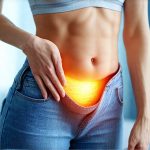The aftermath of illness – even seemingly mild ones like a persistent cold or flu – can leave individuals feeling depleted long after acute symptoms subside. This lingering fatigue isn’t merely psychological; it represents a physiological state where the body’s resources have been significantly taxed, and its natural restorative processes require support. Conventional medical approaches often focus on treating the illness itself, but less attention is frequently given to the protracted recovery phase that follows, leaving many people struggling with diminished energy levels, cognitive dysfunction (“brain fog”), and an overall sense of unwellness for weeks or even months. This prolonged state can significantly impact daily functioning, work productivity, and quality of life, highlighting the need for proactive strategies focused on rebuilding physiological baselines.
Reclaiming vitality post-illness necessitates a holistic approach that goes beyond rest and hydration. It’s about actively supporting the body’s natural healing mechanisms through targeted nutritional interventions, mindful movement, stress management techniques, and optimized lifestyle choices. Importantly, understanding how illness impacts specific biomarkers – those measurable indicators of health – can provide valuable insights into recovery progress and guide personalized strategies for rebuilding foundational health. A key area to consider is urinalysis, as changes in urinary composition often reflect the body’s metabolic state and ability to detoxify. While not a substitute for medical diagnosis, paying attention to these parameters can empower individuals to take ownership of their healing journey and work collaboratively with healthcare providers. You may also want to explore how to improve urinalysis results naturally to learn more about optimizing your health markers.
Nutritional Rebuilding & Baseline Restoration
Nutrition plays an absolutely pivotal role in post-illness recovery. During illness, the body utilizes significant nutrient stores to fight off infection and repair damaged tissues. Replenishing these depleted reserves is essential for restoring energy levels and supporting immune function. A diet rich in whole, unprocessed foods – fruits, vegetables, lean proteins, and healthy fats – provides the building blocks needed for cellular regeneration. Specific nutrients deserve particular attention during this phase: Vitamin C, crucial for immune support; Zinc, important for wound healing and immune cell development; Vitamin D, vital for immune regulation and bone health; and B vitamins, essential for energy production and nerve function. Beyond simply increasing intake of these nutrients, focusing on bioavailable forms – those that the body can readily absorb and utilize – is key. For example, pairing Vitamin C with iron-rich foods enhances iron absorption, while consuming fats alongside fat-soluble vitamins (D, E, K) improves their uptake.
Furthermore, gut health significantly influences overall recovery. Illnesses often disrupt the delicate balance of the gut microbiome, leading to digestive issues and impaired nutrient absorption. Incorporating probiotic-rich foods like yogurt, kefir, sauerkraut, or kimchi can help restore a healthy gut flora. Similarly, consuming prebiotic fibers – found in onions, garlic, leeks, asparagus, and bananas – provides nourishment for beneficial gut bacteria. Addressing any underlying food sensitivities or intolerances is also crucial, as these can contribute to inflammation and hinder the healing process. A temporary elimination diet, guided by a healthcare professional, may help identify trigger foods and allow the gut to heal. Hydration remains paramount; adequate water intake supports detoxification pathways and optimizes cellular function. Considering foods that don’t interfere with pelvic muscle recovery can also be beneficial for a holistic approach to healing.
Addressing Urinalysis Biomarkers Through Diet
Urinalysis provides a window into metabolic processes occurring within the body. Post-illness, several key biomarkers may indicate areas needing support: Ketones in urine can suggest insufficient carbohydrate intake or impaired glucose metabolism, indicating the body is resorting to fat as an energy source. Increasing complex carbohydrates and ensuring adequate hydration can help address this. Elevated levels of nitrites often point towards bacterial activity, potentially lingering from the illness or a developing imbalance in gut flora – supporting gut health through diet (as described above) becomes crucial. The presence of protein in urine (proteinuria), while requiring medical evaluation, could indicate kidney stress; adequate hydration and avoiding excessive protein intake are important considerations. If you’re experiencing flare-ups, learning how to build a flare-up recovery routine that works for you can be incredibly helpful in managing symptoms.
Supporting Detoxification Pathways Naturally
Illness generates metabolic waste products that need to be efficiently eliminated from the body. The liver and kidneys play central roles in detoxification, and supporting their function is essential for recovery. Cruciferous vegetables like broccoli, cauliflower, and kale contain compounds that support liver detoxification enzymes. Adequate fiber intake promotes regular bowel movements, facilitating the elimination of toxins through the digestive system. Staying well-hydrated supports kidney function and helps flush out waste products via urine. Furthermore, minimizing exposure to environmental toxins – such as pesticides, herbicides, and pollutants – reduces the burden on these detoxification pathways.
Mindful Movement & Stress Reduction Techniques
Physical activity, even gentle movement, can significantly boost energy levels and improve mood post-illness. However, it’s crucial to avoid overexertion, which can further deplete resources. Starting with short walks, stretching exercises, or yoga can gradually rebuild strength and endurance. Listening to your body and resting when needed is paramount. Stress management techniques are equally important. Chronic stress suppresses immune function and hinders healing. Practices like meditation, deep breathing exercises, mindfulness, or spending time in nature can help reduce cortisol levels and promote relaxation. Prioritizing sleep – aiming for 7-9 hours of quality sleep per night – allows the body to repair and regenerate. Prioritizing self-care isn’t selfish; it’s an essential component of a successful recovery strategy. Taking quiet moments that benefit pelvic recovery can be a powerful way to incorporate restorative practices into your daily routine.





















